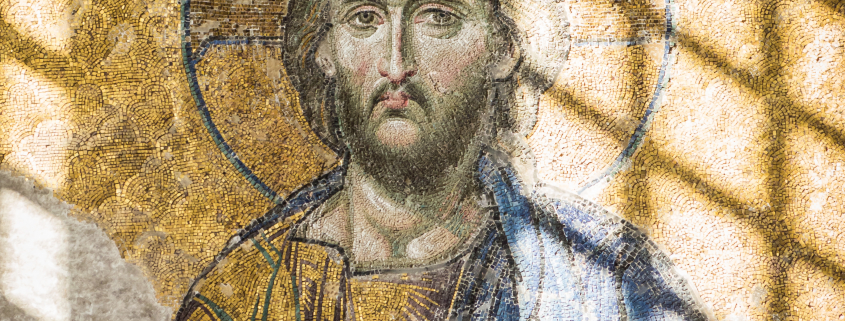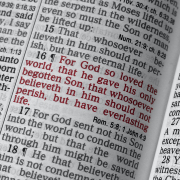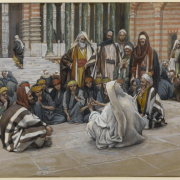Did Jesus Claim to Be Divine?
In a Jewish mindset there is only one God in all the cosmos (Deut. 6:4, Isaiah 44:6). It would be remarkable for a Jewish person to claim his own divinity; however, it is even more extraordinary that Jesus’s early Jewish followers agreed with his divine claims!
Throughout the New Testament books of Matthew, Mark, Luke, and John, Yeshua is shown doing things that only God can do. Yeshua is well-known for his hundreds of miracles that he performed when he was on Earth. He did things like turning water into wine, healing those that were sick, making blind people see again, restoring leg function to those who could not walk, and even bringing people back from the dead.1 Not only could Yeshua do these miraculous things, but he could also control the weather and walk on water.2 Yeshua was so incredible that he even enabled Peter, one of his closest followers, to walk on water as well! But Yeshua’s most famous act by far was when he rose from the dead.3 After Yeshua appeared to his followers and many others, he then ascended into Heaven where he sits with his Father even to this very day.
There are also additional instances where Jesus can be seen saying things that only God can say. For example, Jesus claimed the title, “I Am,” for himself, an unmistakable allusion to the name that God told Moses to identify God as.4 This is something that no ordinary Jewish person would ever say or claim because the name of God is so revered and protected. Jesus also declared that he was “lord of the Sabbath.”5 This is a major claim, because only God is lord of the Sabbath. Furthermore, Jesus claimed that he has the authority to forgive sins, and only God can forgive sins.6
While Yeshua performed many actions and claimed many things that give us insight into his divinity, his followers also wrote that he was divine. Numerous authors in the Bible, including eyewitness followers like John, described Jesus as uncreated, eternally existent, and the one through whom all things were made.7 Only God fits these characteristics. Not only did his followers write that he is divine, they also worshipped him as well.8 This is significant because the Bible says that only God is to be worshipped.9 No religious first-century Jewish person would worship another human being, only God. For example, Peter, Paul, and Barnabas were once worshipped by Greek and Roman crowds, but they refused that worship because, as Jewish men, they knew that only God deserved that reverence.10 This is why their worship of Jesus is so astounding. To top things off, after one of Jesus’ followers, Thomas, saw Jesus alive after his death, he exclaimed, “My Lord and my God!” (John 20:28). Jesus accepted the title.
John reported that Jesus performed so many miracles and did so many things that it would be literally impossible for anyone to write them all down (John 21:25). Jesus is God in the flesh and preached a message of love, truth, and repentance, and lived a life free from sin. God loved us so much that he sent his Son, Jesus, to die on a cross for our sins and to give each and every one of us a chance to live eternally with him in never-ending happiness. He awaits the conclusion of his mission where he will come to the earth again and put an end to all suffering and misery.
Footnotes
- John 2:1–11; Mark 5:35-42; Luke 8:49-55; John 11:38-44.
- Matthew 8:23-27, 14:22-33; Mark 4:35-41, 6:45-52; Luke 8:22-25; John 6:16-21.
- Matthew 28:5-6; Mark 16:6; Luke 24:5-6; John 20:11-16.
- Exodus 3:14; John 8:58.
- Matthew 12:8; Mark 2:28; Luke 6:5.
- Matthew 9:2; Mark 2:5-7; Luke 7:48.
- John 1; Hebrews 1:2; Colossians 1:16; 1 Corinthians 8:6.
- Matthew 14:33; 28:17
- Exodus 20:3; 34:14; Deuteronomy 5:7; 6:13-15; 2 Kings 17:35-36; Revelation 19:10; 22:9.
- Acts 10:23–26; 14:8–18






 Public Domain
Public Domain
